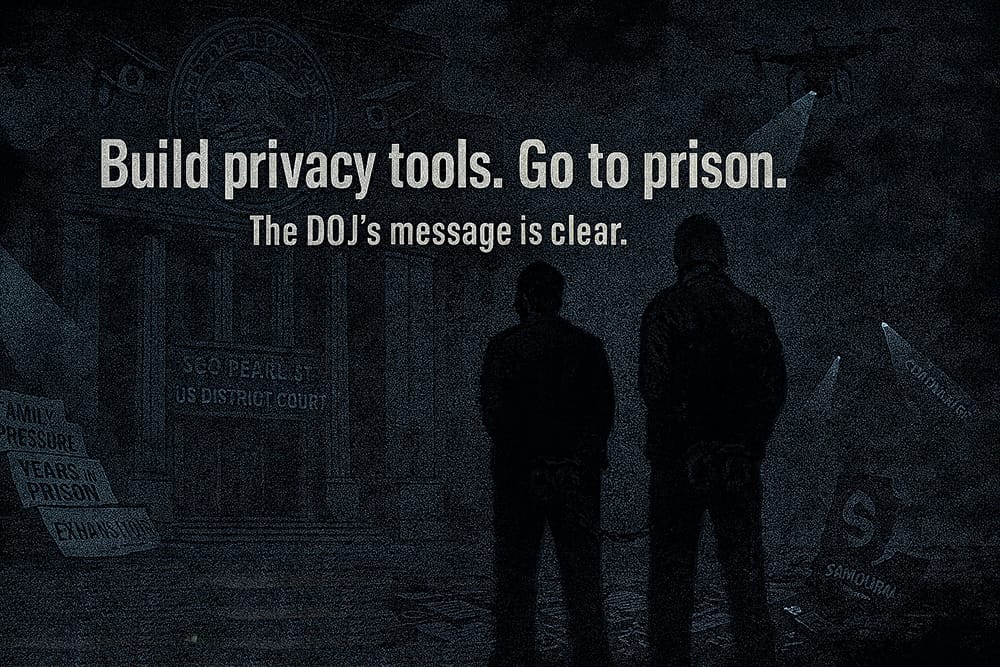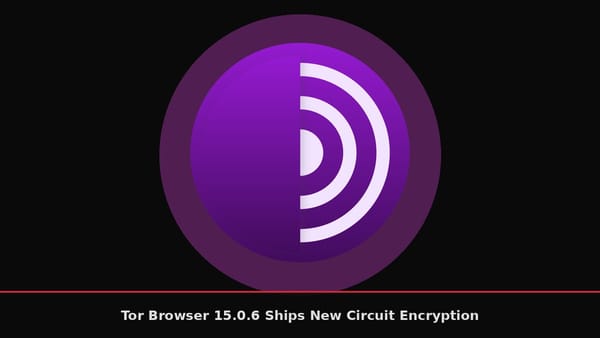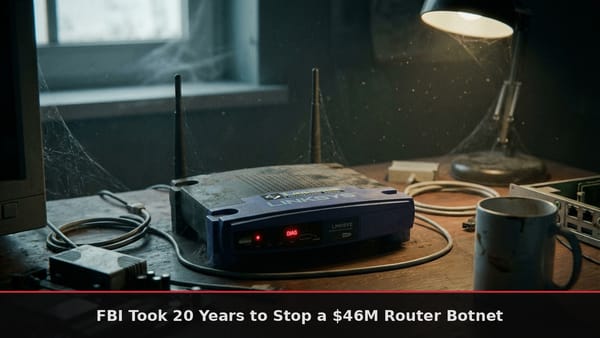Build Privacy Tools, Go to Prison, Samourai Developers Change Pleas
The code they wrote remains free, waiting for the next generation of developers smart enough to never attach their names to it.

The DOJ finally broke Keonne Rodriguez and William Lonergan Hill after 461 days. The Samourai Wallet developers are changing their pleas to guilty today at 10:00 and 10:30 AM in Judge Denise Cote's courtroom at 500 Pearl Street. The state's message couldn't be clearer: build privacy tools, go to prison.
Rodriguez and Hill faced the full weight of federal prosecution for creating software that actually worked Samourai's Whirlpool CoinJoin implementation mixed over $100 million worth of Bitcoin, breaking chain analysis and preventing financial surveillance. The DOJ called it money laundering. Developers called it math.
In April 2024 federal agents grabbed everything: code repositories, user data, communication logs. Standard playbook when the state wants to map an entire ecosystem before moving on the next targets. The 461-day grind between arrest and plea tells you everything about their tactics financial exhaustion, family pressure, the promise of decades in federal prison versus whatever deal they're offering today.
The personal leverage prosecutors deployed is obvious family involvement, kids watching their parents face life-altering charges for writing code. Remember Ross Ulbricht's mother testifying, begging for mercy?
The timing matters. This plea comes as the DOJ pushes to classify all privacy tools as money transmitters, requiring impossible compliance frameworks designed to kill non-custodial wallets. Wasabi already folded, blocking US users and implementing chain analysis. JoinMarket operators are watching today's hearings knowing they're next.
The only rational response is anonymous development which, becomes mandatory. Satoshi had it right build the tools, release them into the wild, and disappear before the state machinery spins up. The "money laundering" charge is particularly rich given that banks process trillions in actual criminal proceeds while paying token fines. HSBC laundered cartel money for years nobody went to prison. But write privacy code that threatens financial surveillance? That's when handcuffs appear.
Today's hearings will likely feature the standard theater, which is prosecutors painting privacy as inherently criminal, defense attorneys negotiating years instead of decades, judges pretending this is about law rather than control. The real verdict was written the moment they were arrested you cannot build financial privacy tools in the jurisdiction of the US empire.
Every developer watching this case now faces a choice: continue building in the open and accept the eventual knock on the door, or recognize that privacy development itself requires privacy. The state just taught a masterclass in why anonymous deployment isn't paranoia it's operational necessity.
The crypto industry's response will be telling. Watch for the usual suspects to distance themselves, mumbling about "compliance" and "working with regulators" while privacy dies by a thousand cuts. The builders who matter are already moving to Tor, using nyms, deploying code through dead drops.
Rodriguez and Hill built tools that threatened the surveillance state's most critical infrastructure: total financial visibility. Today they'll stand in federal court and say whatever words keep them from dying in prison. The code they wrote remains free, waiting for the next generation of developers smart enough to never attach their names to it.




